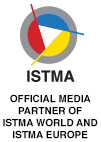formnext 2016: New materials and applications for the Freeformer
07.11.2016
Arburg will be presenting the potential and further development of the Freeformer and of Arburg Plastic Freeforming (APF) on stand F70 in Hall 3.1 at the formnext, from 15 to 18 November 2016 in Frankfurt, Germany.
Arburg will be presenting the potential and further development of the Freeformer and of Arburg Plastic Freeforming (APF) on stand F70 in Hall 3.1 at the formnext, from 15 to 18 November 2016 in Frankfurt, Germany.

• Three exhibits: Freeformers present new applications and materials
• Innovative: High-temperature plastic (PEI), medical-grade polylactide (PLA) and bio-polyamide
• Arburg Plastic Freeforming: Industrial production of fully-functional one-off parts and small-volume batches
Qualified standard granulates will be used to produce fully functional parts in an additive process. The materials processed will include high-temperature plastic (PEI), medical-grade polylactide (PLA) and a bio-polyamide (PA).
The three exhibits at formnext 2016 will demonstrate the wide range of applications of the Freeformer and of Arburg Plastic Freeforming (APF) in industrial additive manufacturing. The system, which works on the basis of inexpensive, qualified standard granulates, continues to be developed on an ongoing and practical basis. The focus is on qualifying further materials and on process-reliable continuous operation.
Functional components consisting of one or two components The Freeformer is equipped with two discharge units as standard. This enables it to process an additional component in order, for example, to manufacture a part in different colours, with special tactile qualities or as a hard/soft combination. Alternatively, it can be used to build structures from a water-soluble support material, enabling complex part geometries to be realised. After the support structures have been removed in hot water, the parts can be used as design prototypes, for example, or for functional and assembly tests.
This pioneering Freeformer is also suitable for use in combination with injection moulding and Industry 4.0 technologies for the customer-specific individualisation of high-volume parts. The build chamber offers space for parts with maximum dimensions of 154 x 134 x 230 millimetres.
Processing high-temperature plastic
One major advantage of Arburg Plastics Freeforming (APF) is the option for processing the same qualified standard granulates as used for injection moulding. The original material is first melted in the plasticising cylinder and then applied to a part carrier moving on three axes. The desired three-dimensional component is therefore created layer by layer.
For the first time, the Freeformer can now also process a high-temperature plastic in the form of polyetherimide (PEI) Ultem 9085. One of the remarkable features of this application is the layer depth of around 0.14 millimetres and the associated part quality. A small batch of 70 spacers used in Arburg's Allrounder injection moulding machines and weighing just 0.09 grams each will be produced. The build time is around three hours in total. The PEI parts have good mechanical properties and are suitable for high continuous working temperatures. They have a very high specific strength, rigidity and dielectric strength, as well as being resistant to UV and gamma radiation. The material is therefore also extremely suitable for applications in the automotive and aerospace industries.
Implant made from resorbable plastic
With regard to industries and areas of application, the possibilities with the Freeformer are almost limitless. In the medical technology sector, for example, it can be used for the additive manufacturing of individually adapted implants and orthotics as well as models used in preparation for surgery. Arburg will use a medical grade polylactide to show that, in principle, the Freeformer can process the same materials as an Allrounder injection moulding machine. The PLA material gradually dissolves in the body and is therefore particularly suitable for use in implants. At the formnext 2016, a Freeformer will use PLA granulate to additively manufacture an individually adapted implant for facial and cranial bones.













































